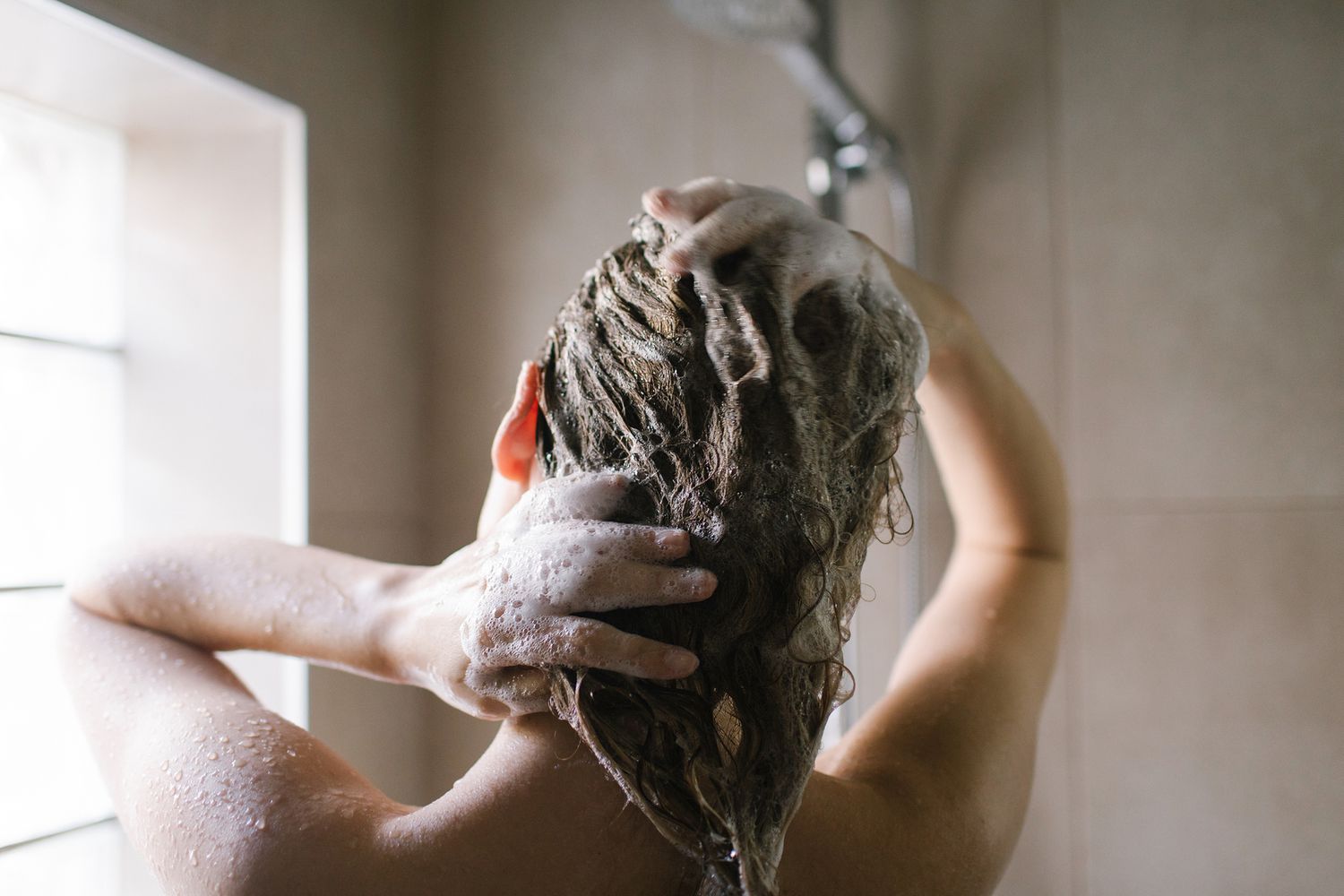Experts Suggest Anti-Dandruff Shampoos Can Help Reduce Hair Loss in Men and Women

The fear of hair loss plagues millions of Americans. Some dermatologists and creators on TikTok suggest that the answer might lie in seemingly unrelated anti-dandruff shampoos, particularly those containing ketoconazole.
Ketoconazole, an active ingredient in many anti-dandruff shampoos, is viewed by these experts as a potential solution to slow hair loss.
According to a TikTok post by Shereene Idriss, MD, a dermatologist and the founder of Idriss Dermatology, these shampoos serve two purposes: they not only help with dandruff but also offer a remedy for hair loss. Since it was uploaded on March 9, her video has gained over 3.1 million views.
Another prominent TikToker, pharmacist Anushya Vijayaraghevan, PharmD, supports the use of ketoconazole shampoo as a treatment for hair loss, in combination with other approaches.
Ketoconazole-containing shampoos, which work to combat skin fungal infections, are readily available both over the counter and by prescription across many stores. But how much can they truly help in preventing hair loss? Dermatologists provide their professional take on this alternative use of anti-dandruff shampoos and how to best guard your hair.
While the FDA doesn't officially approve these shampoos for hair loss prevention, Idriss explained to Health that some evidence suggests their effectiveness. They have proven particularly helpful against androgenetic alopecia, commonly known as male or female pattern hair loss—the most typical cause of hair loss.
As Idriss explained, Ketoconazole possesses anti-androgenic properties and can reduce levels of the hormone dihydrotestosterone (DHT), usually associated with hair loss. Cooperatively, it might stimulate hair regrowth.
DHT often leads to the shrinking of hair follicles—characteristic of androgenetic alopecia—and the consequent loss of hair, detailed clinical associate professor of Dermatology at The Ohio State University Wexner Medical Center, Susan Massick, MD.
Massick states that Ketoconazole reverses this effect, resulting in an increase in the hair quantity and thickness. However, despite evidence showing oral consumption of ketoconazole exhibits anti-androgenic effects, less is known about its impact when applied on skin or scalp.
According to Massick, few research studies—with a small participant count—have explored the possibility of topical ketoconazole as a treatment option for hair loss. Nonetheless, a meta-analysis finds it a "promising" pathway to tackle hair loss but calls for further research.
Apart from ketoconazole's connection to preventing androgenetic alopecia, there are multiple reasons why anti-dandruff shampoos can help avert hair loss. For instance, they can reduce scalp inflammation, hence reducing chances of hair loss, opined founding director of Eternal Dermatology + Aesthetics and professor of dermatology at the George Washington University School of Medicine and Health Sciences, Ife J. Rodney, MD.
Rodney also referred to the role of regular use of anti-dandruff shampoos in maintaining scalp health by eliminating excessive oil, debris, and dead skin cells. Assistant clinical professor of dermatology at UC Davis Health, Oma N. Agbai, MD, echoed similar views, emphasizing the significance of a healthy scalp environment for healthy hair growth.
For individuals dealing with male-pattern or female-pattern hair loss, trying out ketoconazole shampoo could be beneficial. Prescription-strength anti-dandruff shampoo typically contains 2% ketoconazole, and it's also available over-the-counter in in a 1% concentration.
The actual procedure of using the shampoo varies based on the specific product and individual responses. Directions on the bottle of Nizoral—an acclaimed brand of anti-dandruff shampoo, suggest washing the hair with the shampoo twice weekly for a span of eight weeks. Rodney however, mentions that extended use could potentially be harmless.
“As long as you are not experiencing any adverse effects such as itching, burning, skin rashes, or excessive dryness of the hair, you can apply ketoconazole shampoo indefinitely,” Agbai agreed.
To use the shampoo, it’s best to lather it onto your hair near the scalp, let it sit for about two minutes, and then rinse it out, she said.
Since ketoconazole shampoos can be drying, people may want to use moisturizing hair products after rinsing out the anti-dandruff shampoo, Rodney suggested.
Though ketoconazole anti-dandruff shampoo may be helpful for people with androgenetic alopecia, it won’t help prevent all types of hair loss and may not work for everyone. The effectiveness “primarily depends on the underlying cause of the hair loss,” said Agbai.
However, this hack isn’t the only strategy available to help those with hair loss.
People with androgenetic alopecia may be prescribed topical treatments such as minoxidil, oral medications, light therapies, or more. Treatments for other types of hair loss may look slightly different—hair loss from alopecia areata, an autoimmune condition, may be treated with topical steroids, while hair loss from tinea capitis may require oral antifungal drugs, for example.
Lifestyle changes may also be helpful in preventing hair loss, Agbai said. Exercising regularly and eating a balanced diet that includes protein, iron, zinc, vitamin D, and biotin can keep hair healthy. Additionally, people can try regular scalp massages to improve blood circulation to the hair follicles, and should avoid harsh hair care practices such as excessive heat styling or tight hairstyles, she recommended.
If you do start to notice hair loss, it’s best to consult with a dermatologist sooner rather than later, said Rodney.
“With hair loss, time is of the essence,” she said. “It’s much easier to save the hairs you do have than to bring back ones that you’ve lost.”




